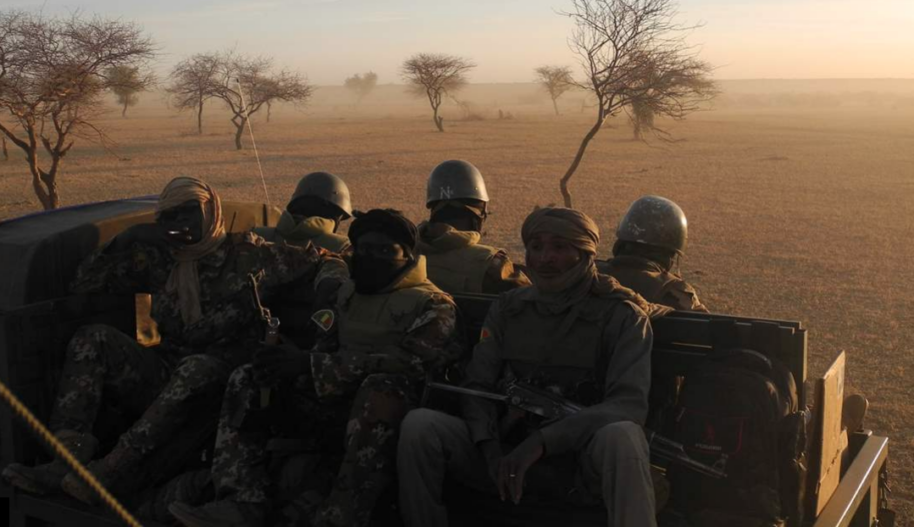Amnesty International is urging the Malian authorities not to vote in a new law which may allow the perpetrators of killings, torture and other atrocities to escape justice.
On 13 December Mali’s National Assembly will examine the ”National Understanding Act” (Loi d’entente nationale) which has vaguely worded provisions.
The law could lead to “abandoning the prosecution of those involved in an armed rebellion if they have no blood on their hands,” according to the statement to the Nation made by Mali President on 31 December 2017.
“Members of the security forces responsible for human rights violations and members of the armed groups who perpetrated horrendous human rights abuses may never be brought to justice if the draft passes into law,” said Samira Daoud, Amnesty International’s West and Central Africa Deputy Director.
“This law would be an insult to thousands of victims of the ongoing conflict in Mali. It would also be a serious threat to Mali’s obligation to investigate and prosecute crimes under international law, including extrajudicial killings, torture and enforced disappearances. The fight against impunity must be the priority for Malian authorities.”
Amnesty International’s analysis of the draft law found that it does not comply with Mali’s obligations under international law, including the Rome Statute, the UN Convention against Torture and the UN Convention for the protection of all persons from enforced disappearance.
Article 4 of the draft law indeed specifies that amnesties shall not be provided to authors of “war crimes, crimes against humanity, rape and other imprescriptible crime.” However, this provision does not prevent amnesties for other crimes under international law such as torture and enforced disappearances. It may also allow amnesties for perpetrators of other serious crimes under Malian law including murder, torture, violence against persons, abductions, among others.
The United Nations Declaration on the Protection of all Persons from Enforced Disappearance also states: “Persons who have, or are alleged to have committed offences-acts of enforced disappearance- shall not benefit from any special amnesty law or similar measures that might have the effect of exempting them from any criminal proceedings or sanction.”
Confirming fears expressed by civil society organizations in a joint letter in March this year, the draft law, if passed, could result in a denial of truth and justice to the victims of crimes under international law and human rights abuses and their families.
Mali is facing more than six years of armed conflict in which hundreds of people were killed, and there were dozens of enforced disappearances, extrajudicial executions and cases of torture. Malian authorities have largely failed to investigate the human rights abuses committed both by armed groups and state security forces since the conflict began in 2012.
In 2017, the United Nations Multidimensional Integrated Stabilization Mission in Mali (MINUSMA) documented 252 cases of human rights violations by security forces and armed groups involving more than 650 victims. The cases included 21 instances of extrajudicial executions and deliberate and arbitrary killings, 12 cases of enforced disappearances and 31 cases of torture and other ill-treatment.
Rather than preventing future abuses by bringing to court the alleged perpetrators of violations of international humanitarian and human rights law, this draft law, if passed, will reinforce the culture of impunity.
Amnesty International is calling on the Malian authorities to amend the draft law, and in particular its Article 4, so that full investigations into crimes under international law and human rights violations by both armed groups and Malian security forces can be carried out. The draft law must be rewritten to be in accordance with Mali’s obligations under international law.
For more information please contact Lucy Scholey, Amnesty International Canada (English): +1 613-744-7667 ext. 236; lscholey@amnesty.ca.
Twitter: @AmnestyWARO
Background
In December 2017 Malian President Ibrahim Boubacar Keita announced the ”National Understanding Act”. Several international human rights organizations including Amnesty International wrote to the President requesting a meeting with him and sharing their concerns about the announcement. So far there has been no response from the authorities. On 31 May 2018, the bill was adopted by the Council of Ministers.
In March this year, Amnesty International uncovered a mass grave in central Mali. Local witnesses in the village of Dogo identified six bodies as people who had been arrested by the military three days earlier.
Amnesty International has also documented an increase in attacks on civilians by armed groups including Ansar Dine and GSIM, and confirmed that 65 people, including children, have been killed by improvised explosives since the beginning of the year. Insecurity and intimidation of teachers by armed groups have forced 715 schools to close across the central and northern regions of the country, affecting more than 214,000 students.













